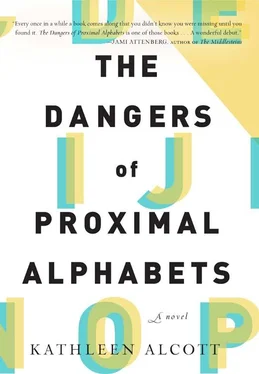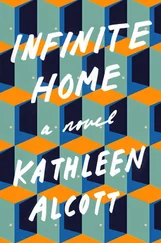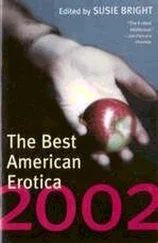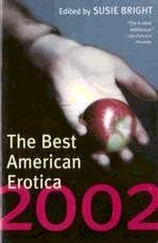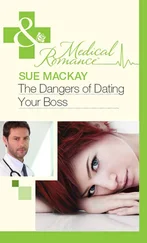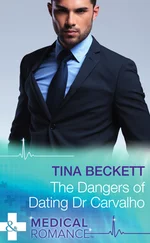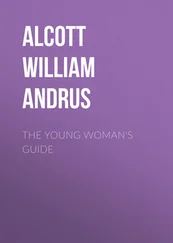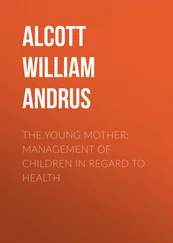I had plotted the joining of our new adult-sized bodies carefully, certain that an event so many years in the making demanded forethought and atmospheric perfection. The afternoon preceding it, fifteen-year-old Jackson sat on my toilet while I cut my hair, bits of his face showing up in the mirror with the movement of my hands and elbows, his lips in the glass image positioned just so in the curvature of my armpit. The bathtub, once a container for our naked bodies and more innocent mischief, reflected also. Did he receive the glances I designed as seductive bouncing toward him? Did he understand that the thin black cotton of my shirt intentionally highlighted my chest? Did he have any idea?
I pushed the broom with efficiency and gestured for him to follow me. My mother’s long-weary bag, patched and repatched for over a decade, already packed with the supplies I’d deemed necessary. We took our normal route downtown, through the streets where our peers sat on benches waiting for their lives to start, down the cobbled alley that ran along the west side of the river, past the same waterside café where our parents had jiggled us on their laps and first begun to realize the full weight of adulthood. On the backside of the long-obsolete mill, which became a home to women’s clothing stores and wine bars and shops that sold rocks and candles, we climbed a set of steps to get to a balcony we frequented. From there, one could look down on the water and see it almost as innocent as the tourists did, feel a civic pride.
A few weeks before, I’d discovered a series of beams and pipes at the landing of the stairs. With a few shifts of weight they served as a ladder to a ledge onto the roof. The top of the mill was like an uninhabited city; it sloped in on itself and rose up again in tens of different places. Much of it was the corrugated steel of the exterior that was visible to passersby below, and other parts were gravel-covered concrete. It spanned almost two blocks. I’d begun escaping up there and eventually assembling a landscape with which to surprise Jackson. In a rectangular area lower than the rest, with four walls and the sky overhead, I’d placed sunflowers in pots around the perimeter, spread a quilt in the center.
He smiled when he saw it, threw his arms skyward in surrender. He’d lived alongside my elaborate plots long enough, seen them both fail and flourish. This one, surely, a success we could settle into for the afternoon. Feeling freed by the scenery, as I hoped he would, Jackson settled his head into my lap and I dared to stroke his hair behind his ears. Growing bolder, I asked him to sit, brought out the pint of whiskey and pulled on it and passed him the bottle. I started coughing, and so did he, and we slapped each other on the back until the coughing had ceased and we started to laugh. We passed the bottle back and forth in silence, both feeling a little sick. We talked about my father, about his mother, about people we found boring, the whole time trying to catch glances of the other like we so often do while passing by windows and wanting to get a look at ourselves. With the end of the bottle, my heart felt rich, and we were confusing syllables more often than not.
He cleared his throat in a serious manner, and I worried he suspected me, that he’d subvert my intentions before even exploring them.
“I have to tell you something,” he whispered.
“You have a very pretty hair and mouth”—I took his hand—“and also … I like boobs. I mean your boobs. I mean I like lots of boobs but I mean I think your brets are beautiful. Breasts.”
It felt like the moment at which you stand waist deep in the water, preparing your body for full submersion. Trying to feel what it means to be underwater beforehand, that release, though imagining it proves impossible.
“I have to tell you something too,” I managed through the weight of my tongue.
“Shoot,” he said, formed a gun out of his fingers and pointed it at the sky, then made a little ka-bloom sound and blew at the smoking gun but miscalculated and ended up spitting all over one of his knuckles.
We laughed, falling into each other and redoing the big gun joke like can you believe how funny we are? And then redoing the gun joke again and laughing some more. When the explosions settled, we found ourselves with my legs around his waist. I crafted a pistol out of his left hand and my right one, and pointed the tip up at the sky.
Things I remember: the green-blue wrapper of the condom, the awkwardness of teeth in too-eager mouths, the seeming multiplication of limbs, the bits of gravel that made their way onto the blanket. That once he made his way in we gaped at how easy it really was to bind two people together. That when it came it almost hurt, that my hands spread out taut and joyous like starfish on his back, that it was warm and sweet and I wanted to make shelter within it.

When James called to tell me my father died, he told me he planned to take over his garden. “Basil and thyme and I don’t know maybe even an avocado tree or peaches I have heard are not always that hard if you’re … and tomatoes and anything you want, I, and you’ll always come for dinner and I’ll cook for you and it will be so delicious you’ll cry, I, because he’s not there to taste it, yeah, but mostly because he would have been so proud and …”
And he went on and on, and his mania was so generous it felt like an assimilation of gentle, and I felt like he was right next to me kissing my forehead too insistently, and I remembered that there’s not just one who calls me I. There are three of us.

My father retained such intellectual strength that over the phone it was often easy to forget the physical weakening, turn an ear away during the gasping pauses, but it was more and more impossible to paint it all brightly when Jackson and I, still a unit, visited him. It rattled Jackson more than it did me, probably because he’d chosen to love my father whereas I had since before I possessed the words to describe the loveliness that was hiding in his neck, safe in his narrative. He didn’t like seeing him bound mostly to his chair, would start biting the half-moons from his fingernails the moment my father started discussing the latest reports from the doctor. As if to thwart the topic’s mention, he always arrived so lively, so well-read, so full of other things to speak of. My father grinned at the interruptions, though when Jackson turned to Julia to overflow his charisma onto her, he would clasp my hand and twinkle at me in the slow the way the dying do, and I would nod. We were both more worried for Jackson than we were for ourselves.
Jackson and I began spending more and more weekends there with the fading of his health, though Jackson claimed it only a reprieve from the city, while I felt more at home under the pressing weight of my father’s disease. A newspaperman his whole life: this was just one more deadline, one more story going to press, and I liked to think of the moment he stopped typing and stood up and pushed his chair in with precision; of the way he would insist, after, on a drive; of the release he always felt, postpublishing; of his byline, the printed letters that formed his name behind the plastic of the newspaper box. Throughout my childhood, I would put a quarter in the slot, watch the frozen president disappear, slowly turn the steel latch, and reach into the dark space to bring my father into the light.
One Saturday at my father’s house, I woke to find my childhood bed still smelling but absent of Jackson. Julia, just waking with coffee in the kitchen, hadn’t seen him, and we set about calling his phone repeatedly, assuming the worst. His car — ours — was gone, and we hoped against hope his sleep hadn’t discovered how to move Park to Drive. When he never answered she grabbed her large key ring and we rolled through the downtown, only finding a new generation of young mothers, teenage café employees flipping signs to open, joggers intent on their journey. Back at home, we opted not to tell my father, distracting him instead with the newspaper, fresh-squeezed orange juice. At ten o’clock Jackson appeared, the look on his face the holiness that occurs after a long time alone, and told us to get in the car.
Читать дальше
